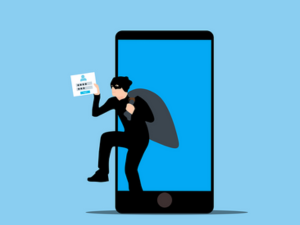Authored by: Bryan Lachapelle, President & CEO
 Picture this: It’s a regular morning, and you're checking your email. Suddenly, you see a message from your antivirus software that reads, “Your antivirus subscription has ended. To resume service and keep your device protected, please call us immediately.” Concerned about your computer’s security, you dial the number without hesitation. A helpful, professional-sounding person answers and walks you through installing a “renewal link” to get your protection back. But moments after clicking it, your screen goes haywire—your cursor moves on its own, windows open and close, and it feels like someone else is controlling your machine.
Picture this: It’s a regular morning, and you're checking your email. Suddenly, you see a message from your antivirus software that reads, “Your antivirus subscription has ended. To resume service and keep your device protected, please call us immediately.” Concerned about your computer’s security, you dial the number without hesitation. A helpful, professional-sounding person answers and walks you through installing a “renewal link” to get your protection back. But moments after clicking it, your screen goes haywire—your cursor moves on its own, windows open and close, and it feels like someone else is controlling your machine.
This is a textbook example of a TOAD attack.
No, it’s not about frogs—TOAD stands for Telephone-Oriented Attack Delivery, and it’s an increasingly popular cybercrime tactic. It blends email or text messages with phone calls to trick people into installing malware or handing over sensitive data.
How TOAD Attacks Work
TOAD attacks prey on trust. As people become more suspicious of phishing links in emails, cybercriminals shift gears. Instead of prompting you to click a suspicious link directly, they ask you to call a number. That phone call feels safe—it’s you taking the initiative, right?
Wrong. Once on the call, scammers pose as trusted companies—antivirus providers, tech support agents, even banks. They build trust quickly and then ask you to install software or share private details. That “helpful” software? It's usually malware, remote access tools, or spyware designed to steal your information or take control of your device.
Recent data shows:
-
10 million TOAD attacks occur each month.
-
67% of businesses were targeted by TOAD attacks in 2023.
How to Protect Yourself from TOAD Attacks
The best defense is awareness. Here’s how to keep yourself and your business safe:
-
Don’t trust phone numbers in emails or texts.
Always go to the official website of the company and call the number listed there. -
Question urgency.
If someone on the phone is pressuring you to act immediately—especially with money or software installation—take a step back. Scammers rely on panic to cloud your judgment. -
Never install software from unknown sources.
If someone sends you a link or asks you to install something, especially after an unexpected call or message, double-check with a trusted IT professional before doing anything. -
Hang up if something feels off.
You’re not being rude—you’re protecting yourself. Trust your instincts. -
Report suspicious activity.
If you think you’ve been targeted or fallen victim to a TOAD scam, notify your IT department or a cybersecurity expert right away. The sooner action is taken, the better the chance of limiting damage.
Cybercriminals are constantly evolving, and TOAD attacks are just one of the many clever ways they try to breach your defences. By staying alert and thinking twice before making a call or installing software, you can keep your data—and your devices—safe from harm.
Stay smart. Stay secure. And don’t let a TOAD fool you. Call us at 905-228-4809!



